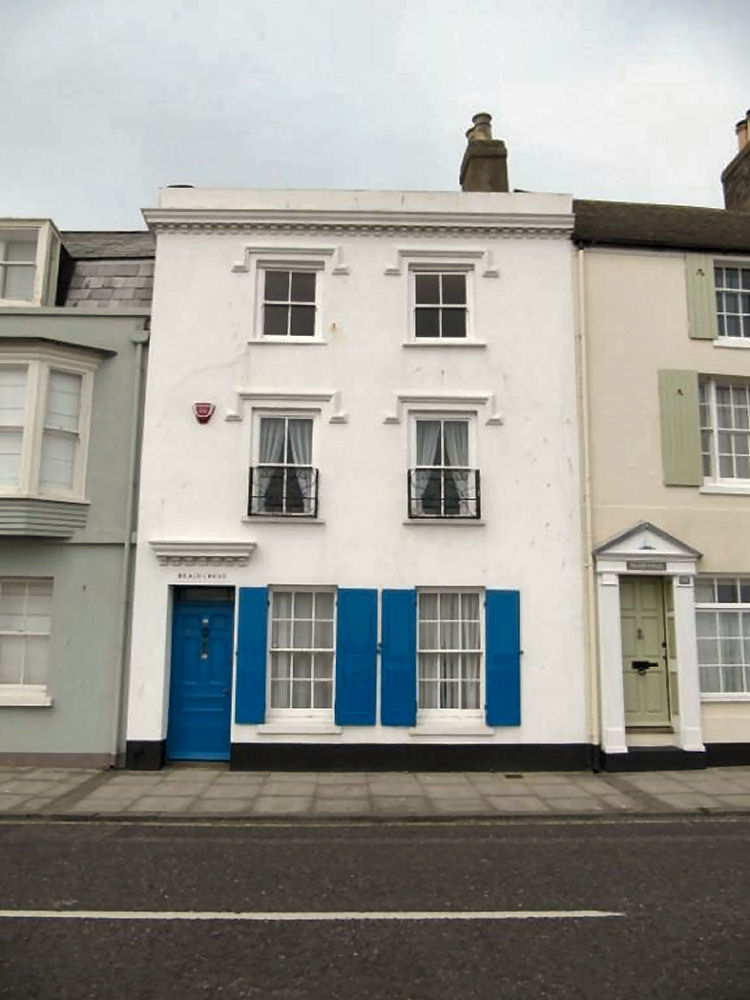Sort file:- Deal, March, 2021. |
||||||
Page Updated:- Wednesday, 31 March, 2021. |
||||||
| PUB LIST | PUBLIC HOUSES | Paul Skelton | ||||
|
Earliest 1847- |
General Wolfe |
Latest 1848+ |
||||
|
155 Beach Street Deal
General Peter Wolfe was born in Westerham, Kent in 1727 and died in 1759 after a distinguished career. Destined for a military career, being the eldest son of Colonel and later Lieutenant General Edward Wolfe, he entered his father's 1st marine regiment as a volunteer at the age of 13. Suffering from seasickness, he transferred to the 12th Regiment of Foot in 1740 and set sail for Flanders. Here he was promoted to lieutenant and made adjutant of his battalion. At the battle of Dettinger, being noticed by the Duke of Cumberland, he was made captain of the 45th Regiment of Foot. In 1748, at just 21 years of age and with service in seven campaigns, Wolfe returned to Britain following the Treaty of Aix-la-Chapelle which ended the war. Once home, he was posted to Scotland and a year later made a major of the 20th regiment in Stirling and he remained there for eight years. Although participating in the failed British amphibious assault on Rochefort, Wolfe was one of the few military leaders who had distinguished himself in the raid which was brought to the notice of the prime minister, William Pitt, the Elder. Despite struggling with bouts of ill health suspected to be tuberculosis on 23 January, 1758 James Wolfe was appointed as a brigadier general. William Pitt the Elder chose him to lead the British assault on Quebec City the following year, with the rank of major general. In March 1759, Wolfe wrote "If, by accident in the river, by the enemy's resistance, by sickness or slaughter in the army, or, from any other cause, we find that Quebec is not likely to fall into our hands (persevering however to the last moment), I propose to set the town on fire with shells, to destroy the harvest, houses and cattle, both above and below, to send off as many Canadians as possible to Europe and to leave famine and desolation behind me; but we must teach these scoundrels to make war in a more gentleman like manner." Wolfe then led 200 ships with 9,000 soldiers and 18,000 sailors on a very bold and risky amphibious landing at the base of the cliffs west of Quebec along the St. Lawrence River. His army, with two small cannons, scaled the cliffs early on the morning of September 13, 1759, surprising the French. Faced with the possibility that the British would haul more cannons up the cliffs and knock down the city's remaining walls, the French fought the British on the Battle of the Plains of Abraham. They were defeated after fifteen minutes of battle, but when Wolfe began to move forward, he was shot three times, once in the arm, once in the shoulder, and finally in the chest. Wolfe's body was returned to Britain and interred in the family vault in St Alfege Church, Greenwich alongside his father (who had died in March 1759).
This beerhouse with the same name was obviously named in his honour and the only mention I have found of this pub, so far is from Bagshaws directory and as below.
LICENSEE LIST SNOSWELL James 1847 SPEARS Charles William 1848 http://www.closedpubs.co.uk/generalwolfe.html
|
||||||
|
If anyone should have any further information, or indeed any pictures or photographs of the above licensed premises, please email:-
|
||||||
| TOP |
|
|
||||
